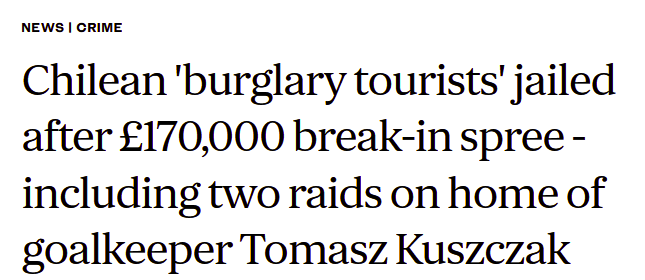Since someone has broached the subject of pension reform, I wonder if a bit of English language review might be in order. For the following I’ve borrowed from local media sources. I of course invite corrections to errors and amplifications for this brief collection.
As of the end of January 2025: The CL Congress approved the pension reform which is expected to generate considerable changes affecting workers, pensioners, and employers, as well as creating inflationary pressures. If approved by the “Constitutional Court” the reform measure goes into effect in March this year, though some provisions would come gradually.
Right now most “salaried workers” contribute 10% of their pay to their selected pension fund, something widely viewed as unpopular and unfair to workers. The reform means another 7% will be added, but it is a tax to be paid by already burdened employers. Oh, and this “contribution” is in addition to the 1.5% already paid to the Disability and Survivorship Insurance which means employers would pay a total extra tax of 8.5% of gross worker salary, making the taking on of additional employees to be discouraged. However, this rate is to be applied gradually over a period of several years. Part of this deduction payment goes to the worker’s individual savings account (4.5%), and the other 4% to “Seguro Social”. But while all of this is supposed to cover such things as disability, there are some that suggest that the new reform has gone “woke” as they say in the US, and is expected to have gender-based funding increases in line with the Boric government feminist coven.
In that worker’s Seguro Social deduction, 1.5% will be considered as a “loan” workers pay to the system to accumulate in bonds, to be paid back when the person retires. This is a dubious feature in part because the government plans to use those withholdings to fund more immediate pension spending objectives. Supposedly, for the 1.5% which does not go directly to the worker’s individual account and is used in Social Security, “small bonds” (government expression) are issued in the name of each worker, which are then grouped into a “macro bond” to be controlled of course by the central government. That bond gets changed when a worker retires and he/she/it can sell it or keep it as an investment item. It’s unclear if the results will be taxable.
As some Discussers know, Chile has a universal guaranteed pension, which some have described as retirement income for drug dealers who never paid into any pension system. Of course it covers more than drug traffickers but the point is that even if you never paid into this “social security” you still get paid in your retirement years. Until the new reform, the universal guaranteed pension - PGU for “Pensión Garantizada Universal” didn’t pay a great deal. But with the reform it will go up to 250,000 CLP monthly. No word on cost of living or link to UF adjustments. The gradual implementation means that persons over 82 years should start to receive increases within 6 months. Certain persons who supported the Marxist Allende government and had their wrists later slapped will evidently get some special treatment under this adjustment, and there is widespread criticism of that sop for the criminals of the far Left.
The current dreaded AFP varying risk multifunds (A,B, C., etc) are to go away with this pension reform, to be replaced with so-called generational funds, where investment would be automatically adjusted according to the age of the worker: young people will assume more risk to seek higher returns, while people close to retirement will have theoretically safer investments that might damp large fluctuations in their savings. You don’t get to choose. The nanny state decides what risk level bond you can have.
The dreaded AFPs get some competitive reworking. Every two years, 10% of the affiliates will be randomly reassigned to the AFP that charges the lowest commission, which might, in theory, help reduce the current excessive costs for workers. Administrators with less than 25% of the system’s affiliates will be able to participate in this bidding process. This is a bone thrown to the critics of the AFP practices and it remains to be seen what benefit, if any, may accrue.
It’s unclear how much of an inflationary effect this will have, and how it all might be adjusted to future costs of living and CLP devaluation.
No idea if anyone is even interested in this stuff. And there is a lot more to it than the thin version I summarized here.












